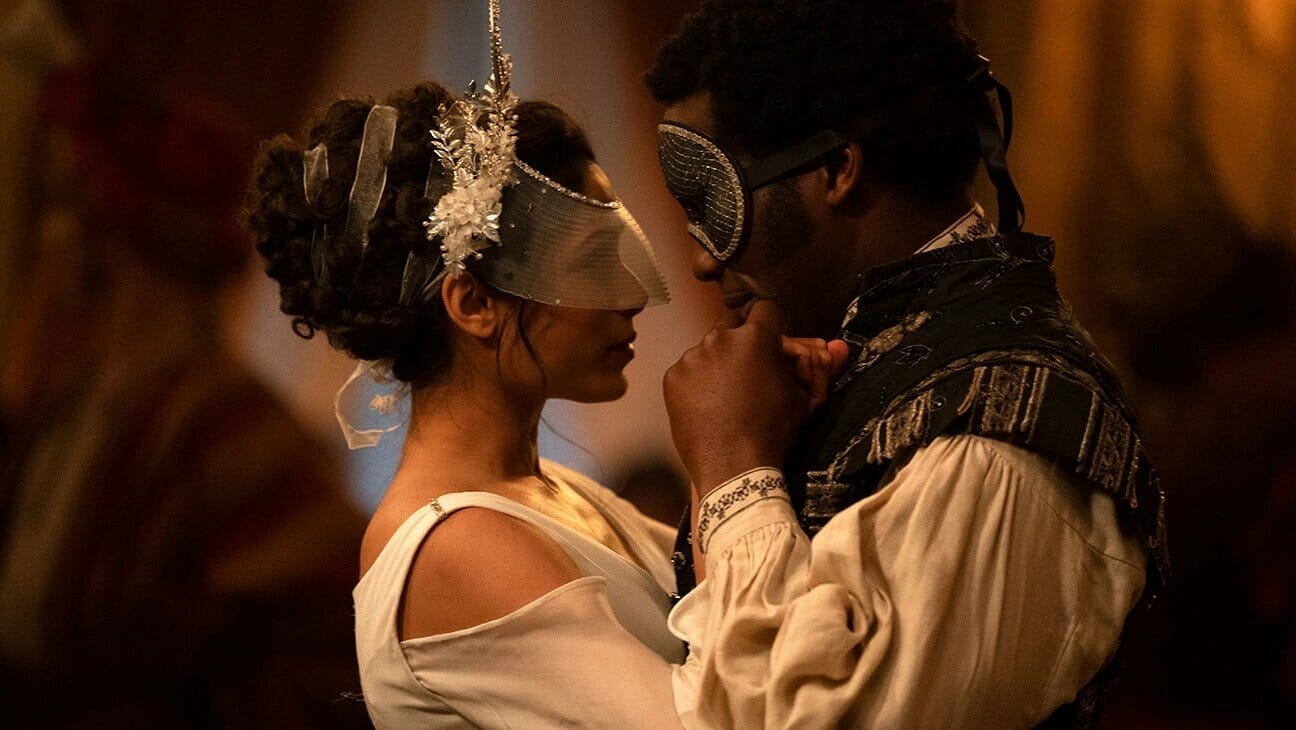Love is a fickle thing—unless love is happening in 19th-century England, in which case it’s entirely predictable and nearly always ends the same. The Victorian/Regency-era romance genre is notoriously unadventurous. It’s the down duvet of movies: comfortable, elegant, and mostly helpful for sleeping. Jane Austen would be rolling in her grave if she weren’t bored stiff. Mr. Malcolm’s List, adapted from the same-named novel, doesn’t enliven the genre, but it might help Jane rest a little easier.
It’s a simple rom-com of manners, errors, and what have you. After eligible bachelor Mr. Malcolm (Ṣọpẹ Dìrísù) turns down high-society heiress Ms. Thistlewaite (Zawe Ashton), the spurned woman finds out she failed a strict list of qualifications that Malcolm expects of a bride. To get revenge, she recruits her childhood friend Selina (Freida Pinto) for a devious plan: turn Selina into Malcolm’s perfect woman, engender a romance between the two, and then have Selina reject Malcolm with a list of her own. But (after) you know it, Selina begins to develop feelings for Malcolm.
READ ALSO: Read all of Ryan Bordow’s movie reviews here
Ms. Thistlewaite is a fun character—rash, brash, and amusingly acerbic. Selina, on the other hand, is one of the genre’s most boring protagonists. She’s faultless to a fault: of meager means but perfectly content, exceptionally gorgeous but humble about it, as kind as she is smart and a confidante to all. Her conflicts stem from serving too many people at once. Save for her portrayal by a human being with a face, not a single thing is complex or compelling about her. At least she fits her surroundings.
The script, adapted by Suzanne Allain from her own novel, is—at first—a tepid “will they/won’t they” that can be emphatically answered “duh.” It trudges through well-worn steps in the exact same shoes as its predecessors, sometimes scene for scene. The film that coalesces around it is just as uninspired. First-time feature director Emma Holly Jones lacks a visual signature, and the score—composed by Amelia Warner, who’s done great work in the past—shrugs at its source material like it did the best it could. The only driving forces are the performances. Dìrísù, who excelled in the underseen Netflix horror His House, makes for quite a fine dreamboat, and Oliver Jackson-Cohen of Hill House fame leans hard into his charm. Even minor characters impress: Divian Ladwa, who hasn’t starred in a project with “House” in the title, steals his every scene as a quietly droll servant. The talent brings the talent.
The movie’s middle seems to understand that. As more characters amble in, the script’s question shifts from “will they/won’t they” to “who will end up with whom?”, upending the routine and introducing some mystique. The colorful personalities play off each other better without an obvious endgame. This is, thankfully, the meat of the movie, and the competence-at-worst of all involved redeems the unconvincing beginning. The film sidesteps back into normalcy as it approaches its inevitable consummations, but by that point, enough fun has been had to endear the characters to the audience. Cliché can indeed be comfortable.
★★★ (3/5)




